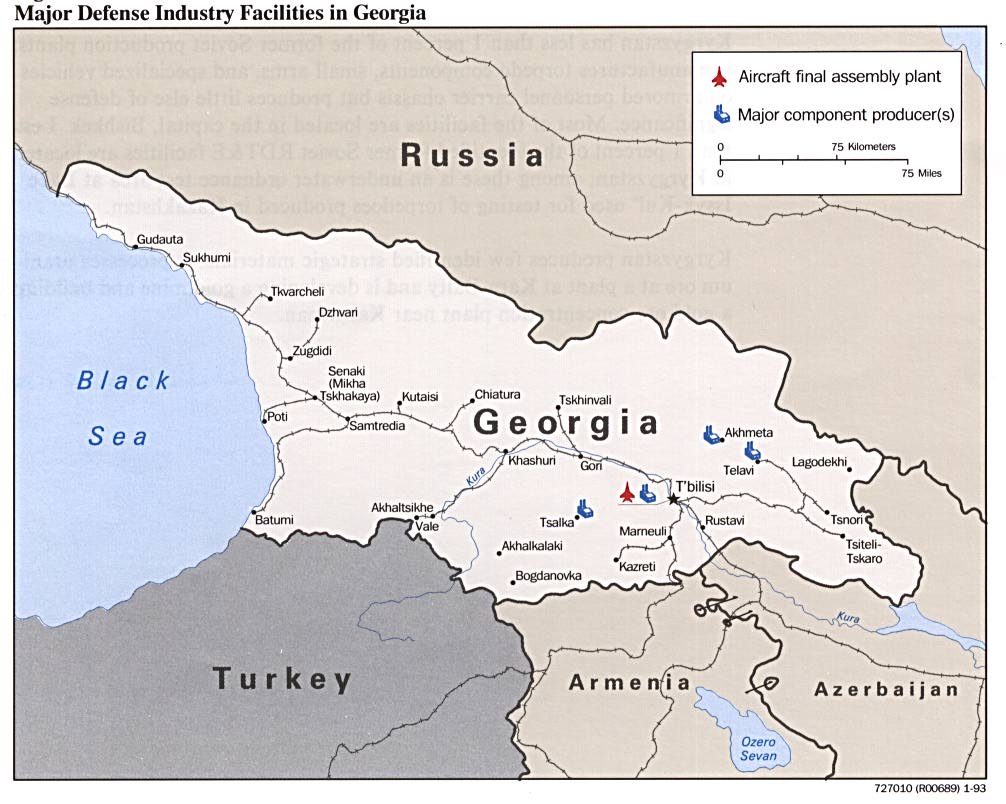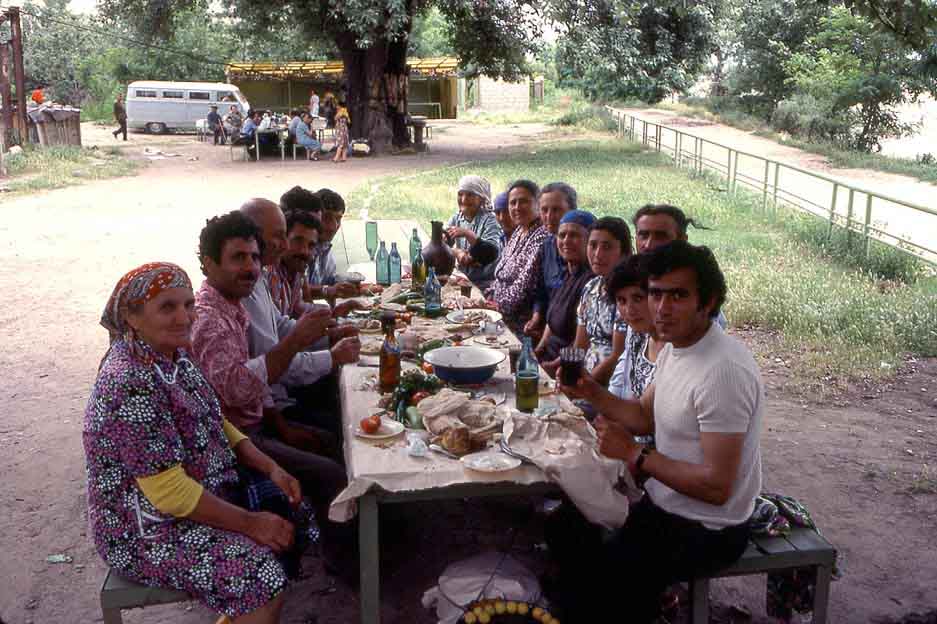Funny thing about the country of Georgia: if you ask most Americans, it doesn't exist.
Or if it does exist, it's in some nebulous region around Mongolia or perhaps Kazakhstan (in reality, Georgia is south of Russia, just to the east of the Black Sea, and sitting right on top of Armenia and Azerbaijan).
In an effort to ascertain what the average American knows about Georgia, I engaged in an Easter weekend poll, pestering every friend and relative I came across to find out how much they knew about my country of focus. My biggest finding of all, as I've said, is that most people don't know anything about the country.
My first interviewee, the 85-year-old grandmother of my roommate, glibly replied "Not a darn thing!" when I asked her what she knew about Georgia. This is not much of a surprise, seeing as she hasn't had much of a memory for the last four years, so I questioned her a bit about Soviet Russia, to see if that would bring back some memories, but she was incredibly vague on the subject. All she could really tell me for sure is that she had never been overseas.
What is of more concern is when I asked younger adults with fully-functioning brains, like my friend's Uncle Greg. Our interview went something like this:
Me: What can you tell me about Georgia the country?
Uncle Greg: Georgia? The country? Lots o' good peaches.
Aunt Laura: No, that's the state.
Uncle Greg: There's a country?
Once Aunt Laura, Uncle Greg's wife, had convinced him that yes, indeed, Georgia was a country, he was able to tell me that U2 would not be performing there in the near future, though this bit of information is derived not from Uncle Greg's knowledge of Georgia, but his immense passion for U2 (he will be seeing them play 8 times when they are in North America this summer). Neither Greg nor Laura knew where Georgia was located, or anything about its history.
My roommate's mother, Diane, who had prepared our sumptuous Easter dinner, wondered if maybe Georgia was in the southeast corner of Russia, but thought it was just a region in good old Mother Russia's domain.
This is where my roommate chimed in, surprising everyone. After beginning with her usual disclaimer that she doesn't really know much about anything, she said, "I know that the Olympic luge person died."
A cry went up from most of the dinner table, as everyone remembered that a luger had died during a practice run down the luge course at the 2010 Winter Olympics. Uncle Greg remembered that "the guy's parents were on their way out to see him when he perished."
My roommate's father, Steve, was the most helpful. He knew that Georgia had once been a part of Soviet Russia.
"It was one of the countries that broke away from Russia, rebelled," Steve said.
Unlike his wife, Steve told me he believed Russia was near Armenia, which is spot on. When asked about recent events, he told me that he remembered a conflict in the region a few years back.
"It was a civil war type of thing," Steve said. There was some debate in the media at the time as to whether the battles constituted a civil war or a war between two sovereign nations.
At work, I interviewed my bosses, a young married entrepreneur-y couple.
When I asked man-boss if he knew anything about Georgia, his response was a simple, "No, I don't." Anything about it's location? "No, I don't." Anything about it in the news. "No, I don't." I wasn't sure if he was being unresponsive to tease me, because he rarely speaks except to take advantage of my gullibility, or if he was being honest.
Lady-boss, on the other hand, immediately placed Georgia beneath Russia geographically, and telling me she remembered watching news stories about the conflict with Russia.



